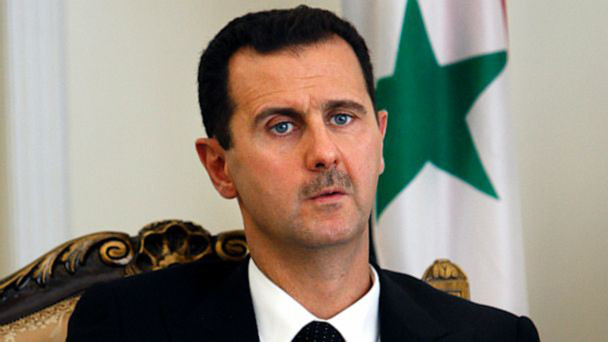
In a recent opinion essay in the National Interest, professor Amitai Etzioni lamented that the United States wasted a great deal of time in Syria, to usher in regime change. Our “goal should be ending the civil war and negotiating a redrawing of the map, rather than regime change”, wrote the George Washington University personality, “and there is no hope for progress without working with [President Vladimir] Putin’s Russia, however distasteful this may be”.
This prescription arrived at a time when Aleppo is under intense bombardment that is reducing rubble into pulp, mixing concrete with the blood of Syrians, with no end in sight. Simultaneously, Iraqi and coalition forces are pushing towards Mosul in Iraq, to liberate the city from Daesh (the self-proclaimed Islamic State of Iraq and the Levant) to end a nightmare that lasted way too long. Mercifully, and though the Battle for Mosul will be costly, Daesh’s promised apocalypse will not materialise. There is, of course, the possibility that Daesh will be reincarnated under a different identity, but Arabs have had enough of such chimerical visions.
Is the quest for regime change — for both Syrian President Bashar Al Assad and the so-called ‘Caliph’ Abu Bakr Al Baghdadi — so bad? Will those trapped under their respective rules not be better served if they were to leave office?
These are not theoretical questions, but practical ones, especially in the light of imminent developments in leading western countries, including the United States and France, where new leaderships are about to enter the scene. Both Washington and Paris have had visceral reactions to the slaughterhouses, even if the administration of US President Barack Obama displayed its legendary caution to postpone the inevitable, while the Socialist President of France, Francois Hollande, was ready to pounce on Damascus after the Baath regime utilised chemical weapons against its own population.
According to the Washington Post, former US secretary of state and Democratic presidential candidate Hillary Clinton’s foreign-policy advisers were getting ready to think about what can be done in Syria if she becomes the next president, which is certainly a good thing, because laissez-faire nonchalance has not and will not work.
Of course, no one knows whether she will opt for more US engagement — specifically in support of a safe zone for refugees and/or a no-fly zone — or pursue Obama’s retreat policies, though she will probably abandon the failed appeasement preference towards the Al Assad regime. Those who, like Amitai Etzioni [an Israeli-American sociologist], are now claiming that the only thing Washington can do is to secure a cessation of hostilities that, presumably, would lead to a negotiated settlement, are delusional. For, it is playing cat-and-mouth with Al Assad that has allowed him to stay in power and even if Francis Fukuyama’s prophetic words — that those regimes still “stuck in history” will need to make way to the global march towards democracy — were not entirely relevant in Syria, the fact remains that the Al Assad regime was teetering on the brink of collapse in 2011 and whose early removal could have spared at least 500,000 lives and countless misery for millions.
Al Assad held on and, with Iranian and Russian financial and military assistance, gained a second life, though this too is of the delusional variety. Naturally, there was no guarantee that successors would be liberal democrats, which vexed Obama, and plunged him into a state of torpor. Inaction may have been his preference though what happens next will not only resolve an ongoing humanitarian crisis, to save hundreds of thousands of lives and stop millions more from being displaced and driven into neighbouring countries, but also restore US credibility.
Those who actually believe that improvements will come to Syria and Iraq with Al Assad in power or Daesh reincarnated need to reassess based on everything that has happened in recent years.
Clinton can address this puzzling problem — with advisers clamouring that Washington should not be engaged to usher in an Al Assad departure — by confronting Russia, not to “stand up to Moscow” and push it back out of the Middle East since it is already out of the region for all practical purposes with the sole exception of Syria. Instead she can insist that Putin must not dodge his international responsibilities if Russia wishes to be part of the world community. It is in Washington’s interest to remind Putin that Russia can either be part of international alliances for peace — in other words it can either end its post-Cold War games — or wallow in its troubled economy. Clinton holds the ultimate card in her hand, which is the power of investments, and she can demand Russia’s cooperation to impose order in a world adrift in indecision.
She will need to persuade Putin that instability and chaos are not useful goals and that letting the Al Assads or the Baghdadis of the world stay for a while, are unbecoming. Settlements are coming for Syria and the Daesh-controlled territories in Iraq and Syria and Clinton will be the adult between the two leaders if she were to inform Putin that the time was long overdue to end a meaningless competition for influence over what was not really meaningful.
There are those in the West who believe that Arabs are a real problem and are not doing enough to contribute to solutions, but this is incorrect. Whatever disapprovals exist are due to perceptions of indecision rather than disagreements over the substance, which is to remove regimes that wallow in extremism. And while it is true that no one can realistically talk about redrawing maps, the regimes in Syria and Iraq cannot bulldoze over millions and expect little opposition. What Clinton and Putin ought to consider is that Al Assad and Daesh cannot possibly be part of the future.
Dr Joseph A. Kechichian is the author of Iffat Al Thunayan: An Arabian Queen, London: Sussex Academic Press, 2015.











